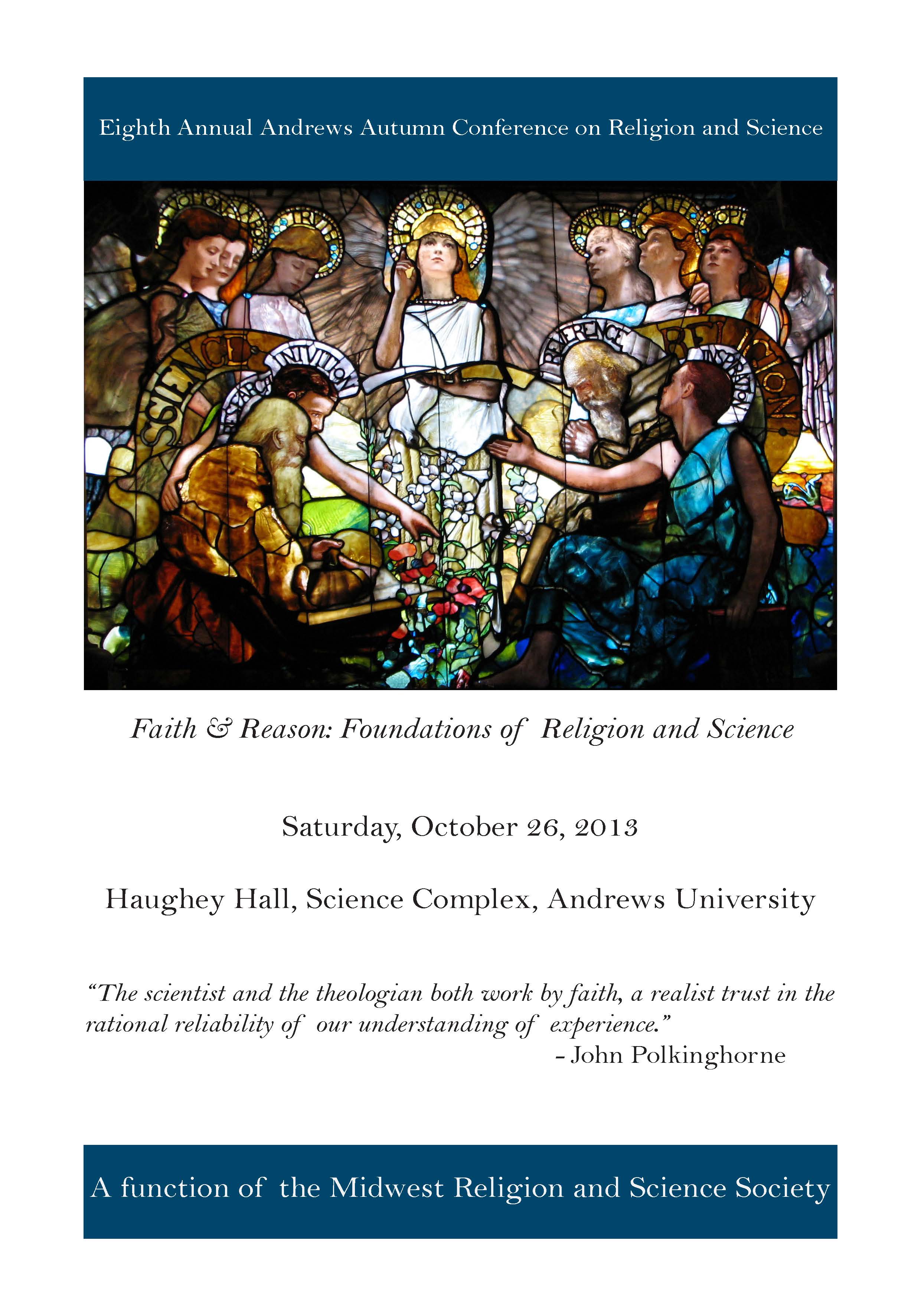A Natural Bridge and Meeting Ground for Faith and Reason
Location
Haughey Hall, Science Complex
Start Date
26-10-2013 9:30 AM
Description
As widely assumed, the essence of mathematics is the dispassionate pursuit of numerical and logical certainty—moving from axioms, definitions and conjectures to clearly stated theorems, proofs and applications. In this light, mathematics is impersonal and indifferent to matters of faith. Or, is it? Deeper considerations of mathematical process, attitudes and ideas challenge this common assumption, and a sampling of perspectives from classical masters and modern communicators of mathematics presents a much more robust picture. Indeed, mathematics--that ‘unreasonably effective’ source of concepts and tools for the sciences, can also serve as a natural bridge and meeting ground for faith and reason.
A Natural Bridge and Meeting Ground for Faith and Reason
Haughey Hall, Science Complex
As widely assumed, the essence of mathematics is the dispassionate pursuit of numerical and logical certainty—moving from axioms, definitions and conjectures to clearly stated theorems, proofs and applications. In this light, mathematics is impersonal and indifferent to matters of faith. Or, is it? Deeper considerations of mathematical process, attitudes and ideas challenge this common assumption, and a sampling of perspectives from classical masters and modern communicators of mathematics presents a much more robust picture. Indeed, mathematics--that ‘unreasonably effective’ source of concepts and tools for the sciences, can also serve as a natural bridge and meeting ground for faith and reason.




Comments
After theological studies at AMBS, Steve Harnish received his Mathematics Ph.D. at the University of Illinois, working under proof theorist Gaisi Takeuti—a friend and protégé of Kurt Gödel. He has since served at Neumann (PA) and Bluffton Universities, and as a founding member of the steering committee of the MRSS. Steve’s professional commitments include mentoring NSF and MCRC-supported undergraduate research in logic, network theory, high performance computing, mathematical physics and the science and religion dialogue.